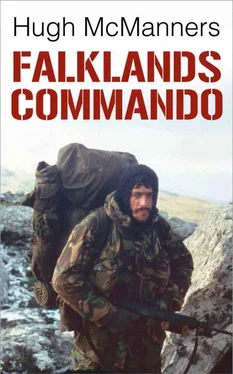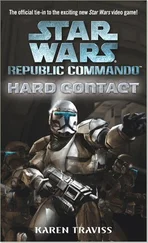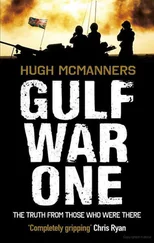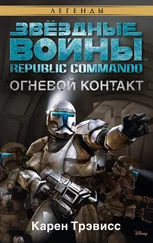Hugh McManners - Falklands Commando
Здесь есть возможность читать онлайн «Hugh McManners - Falklands Commando» весь текст электронной книги совершенно бесплатно (целиком полную версию без сокращений). В некоторых случаях можно слушать аудио, скачать через торрент в формате fb2 и присутствует краткое содержание. Город: London, Год выпуска: 2014, ISBN: 2014, Издательство: Nightstrike Publishing, Жанр: nonf_military, Биографии и Мемуары, на английском языке. Описание произведения, (предисловие) а так же отзывы посетителей доступны на портале библиотеки ЛибКат.
- Название:Falklands Commando
- Автор:
- Издательство:Nightstrike Publishing
- Жанр:
- Год:2014
- Город:London
- ISBN:978-0-992-81540-0
- Рейтинг книги:4 / 5. Голосов: 1
-
Избранное:Добавить в избранное
- Отзывы:
-
Ваша оценка:
- 80
- 1
- 2
- 3
- 4
- 5
Falklands Commando: краткое содержание, описание и аннотация
Предлагаем к чтению аннотацию, описание, краткое содержание или предисловие (зависит от того, что написал сам автор книги «Falklands Commando»). Если вы не нашли необходимую информацию о книге — напишите в комментариях, мы постараемся отыскать её.
Falklands Commando — читать онлайн бесплатно полную книгу (весь текст) целиком
Ниже представлен текст книги, разбитый по страницам. Система сохранения места последней прочитанной страницы, позволяет с удобством читать онлайн бесплатно книгу «Falklands Commando», без необходимости каждый раз заново искать на чём Вы остановились. Поставьте закладку, и сможете в любой момент перейти на страницу, на которой закончили чтение.
Интервал:
Закладка:
It is equally impossible to rank the unpleasantness of those earlier wars with those of today. Dramatic improvements in hygiene, rations, medical services and personal equipment make the lot of the modern soldier seem easier, but have been more than equalled by increases in weapon lethality – and in the amount of equipment modern soldiers carry. Today’s average battlefield loads are heavier than those of the World Wars; one reason is the ubiquitous need for batteries to power everything; and body armour.
However this book is not about the battles of history, but about what faces Service men and women today, on modern battlefields. The horrors of medieval warfare or the bloodbaths of the First World War are relevant to this book only in so far as they help us to understand what happens today. Much of the basic brutality remains unchanged. I would never presume to lessen the memory, bravery or achievements of those who fought in those battles in any way.
Writing as a former professional soldier, I begin by looking at life in a peacetime army, describing the lifestyle, aspirations and motivations that men and women take with them to war. We then follow the ‘blooding’ process, in which a soldier’s career steps up several gears moving from peacetime professionals to becoming combat-hardened troops.
The threats and strictures of military law in modern volunteer armies play different roles in peacetime and in war. These roles, which very much affect men’s behaviour in battle, can only be understood if military law is examined in its historical context. Within modern professional armies, although the full punitive force of military law still lurks in the shadows, it is no longer the prime motivator that forces men to fight. On today’s technical and increasingly individual battlefield, there is little of the close, shoulder-to-shoulder comradeship of 18th-century infantry square formations. Modern soldiers fight more lonely, individual battles – a tendency that will increase as technology develops. Self-motivation created through training is therefore far more important than ever before, and more effective than imposed discipline. Military law nevertheless underpins this self-motivation, and today has a more subtle and complex role to play than in the past – thus earning a chapter of its own.
Unlike virtually any other profession, members of the armed forces prepare for something they hope never to have to do. Without the experience of real operations, practising and training can easily become the perceived purpose of peacetime armed forces which, when they are required to fight, must then slough off a great many misapprehensions and bad practices. Conversely, for well-trained troops, real operations pull together everything they’ve learned, revealing the purpose of drills and functions that previously had been accepted but not fully understood.
The selection and training of Special Forces creates an expectation and commitment in each man, of the likelihood of having to fight (Chapter 4: Commitment to Fight). This advanced sort of military training, which would be unsuitable for “line” units (by which I mean those other than Special Forces), makes the process of going into battle for the first time (Chapter 5: ‘First Blood’), much easier.
Special Forces refer to combat as ‘doing business’ – it’s their job, and how they earn their pay. ‘Doing business’ varies greatly across the different armed Services: in psychological attitude, physical conditions, personal stress and actual danger. The common denominator is death, hence the uncertainty with which each person fights his war. ‘Combat at Sea’, on ‘Land’ and in the ‘Air’ have therefore their own chapters.
‘Commanders’ also have a chapter: from those at the very top the chain of command down to the platoon commanders with their sergeants and section commanders at the bottom who actually do the fighting. Confusion in war is total, command exercised by determined men feeling their way often blindly as if through smoke. The only certain products of their actions are death and terrible injury. Commanders must accept and understand this; in order to save lives, and to remain able to continue fighting. ‘Coping with Carnage’ therefore has a chapter of its own.
And when the war is over, the ‘Aftermath’ is often as difficult to handle as the fighting, the time when men become aware of what they have done, and when enormous efforts must be made to re-establish the rules of law and civilisation. In the moment of survival, men wonder why they are living, and why their friends died (Chapter 12: ‘The Quick and the Dead’), wondering who protected them, or at the nature of a god that allowed such carnage to occur. The aftermath is also the time when those products of war – the dead – must be disposed of, some anonymously into unmarked pits, others with all the care and emotion of their grieving friends.
The final chapter takes us beyond victory parades and retrospective television documentaries (‘Was it all worthwhile?’), to see what happens when combatants return to normal life. Unfortunately, they do not in the military phrase ‘go home to tea and medals’, but must find ways of putting the horrors of the war behind them. The long-term emotional effect of combat becomes ‘Another Kind of War’(Chapter 13). Perhaps the reason for old soldiers ‘never dying but merely fading away’, is that to varying extents, by the end, when they realise how many of their friends have been killed, they’re already dead emotionally.
When studies are made of battles, or when regimental histories are compiled, individuals are often forgotten. The lives of great commanders are researched avidly, but because so many individuals were involved in achieving the victories that these great men planned, it is impossible to see it through their many and different eyes. For each combatant, war is a very parochial, localised experience, almost impossible to relate to a battle or campaign as a whole. Nevertheless, it is the individual who wins wars. Chinagraph arrows drawn by generals on large-scale maps have never yet hurt anybody. The actual killing must be done by a vast variety of people, each with different hopes, fears and aspirations.
The individual is the most important and, for me, the most interesting part of the military machine – purely because, despite enormous pressures to conform to become a mere component, in battle most military people remain human and act according to their individual strengths and weaknesses. Furthermore, their individuality is often the vital spark that creates victory from the potential defeat that every battle starts out as being for both sides.
Individual memories of combat are often at odds with history books, autobiographies and official regimental diaries. For many reasons, whether humane or for all manner of expediency, the unpalatable is often altered or omitted from published accounts. For those without experience of it, combat can appear (in comparison to what actually happened) sanitised and gentlemanly, or excitingly heroic in the ‘John Wayne’ tradition. Individuals also edit their own memories, because remembering the truth is often too painful for them to bear.
Breaking through what to outsiders can seem a conspiracy of silence, is only really possible for someone who has been in combat too – who can understand and ask the right questions. I achieved breakthroughs in many of my interviews, and was quite surprised at some of the things I learned.
For combat veterans the war does not end as the peace treaty is signed. For many the scars do not emerge for months, years or even decades after the last shot was fired. The war lives on in their imaginations, a vivid, terrifying nightmare of guilt, bereavement and black impending doom souring their lives thereafter. Although these long-term effects are only now being identified and accepted by the medical profession, thousands of veterans from past wars have suffered them (and still suffer) in silence – often without realising the cause of their pain.
Читать дальшеИнтервал:
Закладка:
Похожие книги на «Falklands Commando»
Представляем Вашему вниманию похожие книги на «Falklands Commando» списком для выбора. Мы отобрали схожую по названию и смыслу литературу в надежде предоставить читателям больше вариантов отыскать новые, интересные, ещё непрочитанные произведения.
Обсуждение, отзывы о книге «Falklands Commando» и просто собственные мнения читателей. Оставьте ваши комментарии, напишите, что Вы думаете о произведении, его смысле или главных героях. Укажите что конкретно понравилось, а что нет, и почему Вы так считаете.












